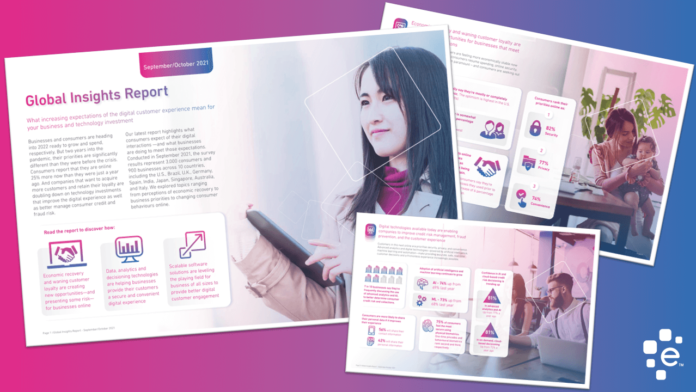The initial surge in online activity in the Asia-Pacific region, caused by the COVID-19 pandemic, has stabilised as consumers in India, Japan, Singapore and Australia focus more on the overall digital experience and practice caution around fraud and security risks.
Experian found this out after interviewing 3,000 consumers and 900 businesses across 10 countries globally, including India, Japan, Singapore and Australia in APAC.
Although higher than pre-pandemic levels, the levelling of online activity since mid-September 2020 means businesses need to shift their focus to address these changing consumer needs, and establish trust when it comes to communicating how they use personal information and data protection.
Mobile wallets have become the most popular payment form in the four APAC countries, with the highest levels of online activity found among consumers in India (80%) and Singapore (69%).
Retail apps are the second most used digital payment method across the same countries, led by India (64%) and Singapore (60%) consumers.
However, concerns around fraud and security remain high as consumers become more reliant on digital payment methods. Globally, top concerns are stolen credit card information (33%), online privacy (32%), identity theft (32%), and fake/phishing scams (31%).
Regionally, security is the most important factor when it comes to consumer online experience – this is especially high in Japan (89%), Australia (83%) and Singapore (82%).
Also, consumers care about high levels of security and data protection when transacting online as more than half across APAC would like to be informed about how their personal data is being protected and stored.
Consumers in India (79%) and Singapore (70%) have the highest need to know why their data is being requested than prior to COVID-19.
Experian said consumer trust will be won by businesses that can successfully deliver against consumer privacy protection and get access to a wider range of personal consumer data.
As long as they trust the business, 56% of consumers globally will share their contact information and 42% will share their personal information – a rise in comparison from the 52% and 40% for both respectively from the previous study.
“In the wake of the widespread shift to digital banking and commerce, organisations around the world have seen a sharp increase in cybercrime. As consumers become more worried about their wider digital footprint which comes with greater exposure to security risks, businesses have to instil confidence in how they are protecting customer data and how it is being used,” said Ben Elliott, CEO of Experian Asia Pacific.
Today, 70% of global businesses say they’re talking about advanced analytics and customer credit frequently – in fact, investment in advanced analytics to reduce friction during digital customer experience is a top priority for the Singapore market (45%).
















